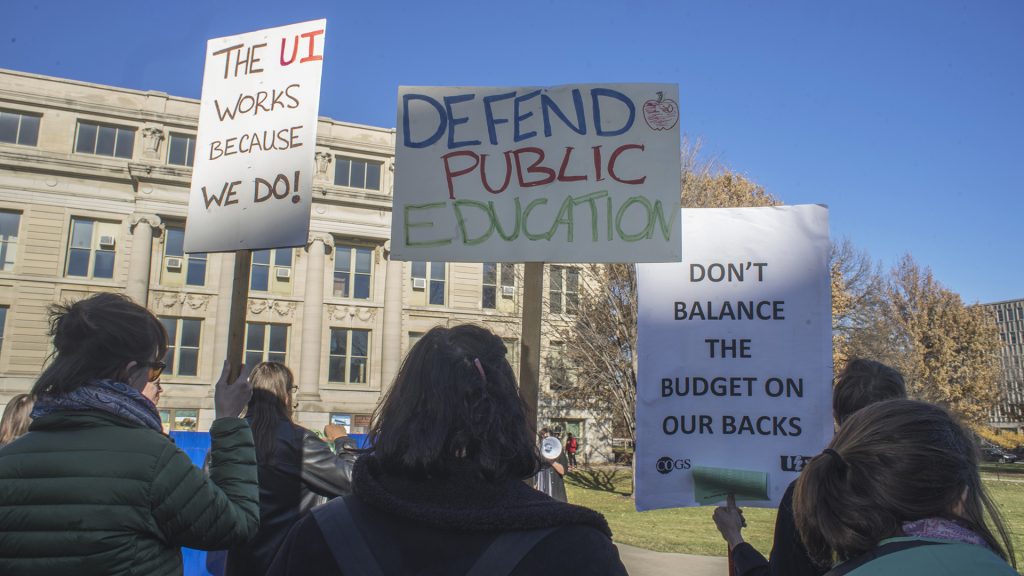The tax bill isn’t set in stone yet, but graduate students can still take a breath.
By Molly Hunter
While the tax-overhaul process isn’t over yet, graduate students fighting to maintain a tax exemption on tuition waivers are almost in the clear.
Members of the University of Iowa’s graduate-student union, COGS, protested the Tax Cuts and Jobs Act on Nov. 29 on the Pentacrest. The House version of the tax bill included a provision repealing a tax exemption many graduate students rely on to keep school affordable.
The version of the bill passed in the U.S. Senate on Dec. 2 doesn’t repeal the exemption, and while there’s a chance the House provision could still make it into the final version of the bill agreed upon in conference, it’s not likely.
“I’d be surprised if the House version passed,” said Vice President of the UI Graduate and Professional Student Government Grant Jerkovich. “Senators have gone out on record saying that they don’t support the tuition waiver, so a lot of people came out and made a big fuss about it, so they backed off.”
RELATED: COGS calls proposed tax bill a ‘danger to higher education’
The House’s proposal would have devastated graduate students, Jerkovich said.
Right now, many graduate and professional students receive a stipend that functions as their salary, and most have their tuition waived in addition.
Currently, only the stipend is taxed as income, while the tuition waiver is tax-exempt. The House proposal would change that by taxing the tuition waiver, money graduate students don’t even see.
“A typical student at the UI on a stipend of about $19,000 would be responsible for nearly $30,000 of taxable income,” Jerkovich said. “It’d be a tax increase of around 200 to 400 percent. That would put many graduate students under the poverty line.”
The House is slated to meet at 6 p.m. EST today. According to the House schedule for next week, a motion is set to send the bill to conference.
In conference, the House and Senate will hash out their differences on the bill, a final version is drafted, and that version is sent to each chamber for a confirmation vote. Once both the House and Senate have confirmed the same version of the bill, it goes to the president for his signature.
During a press call Nov. 29, Sen. Chuck Grassley, R-Iowa, said if the bill is sent to conference, it may be a week or two before it makes to the president’s desk.
“It probably won’t get there until maybe the 15 of December,” Grassley said.
RELATED: Senate, House propose tax reform
In the same press call, Grassley said he will keep advocating for changes to the tax bill he believes are necessary, but he also made it clear he will support tax overhaul whether those changes are made or not.
“Over 30 years, the tax codes become so complex, and you only get about once-in-a-generation opportunity to change the tax code … that I’m going to vote for the bill,” Grassley said.
“When you see students coming out, like the rally that happened on [Nov. 29] … it gives the people a voice,” said GPSG President Tejasvi Sharma. “Senators see that this is something we care about.”
Without graduate and professional students, research universities such as the UI could not function.
“Losing grad students will most likely have an effect on research, have an effect on teaching, have an effect on even the experiences that undergrads have,” Sharma said. “I’m pretty sure you’ve been to classes, too, where you may have thought that the TA did a way better job than the professor. I know I have had. There are some classes I’ve passed, and I’m so grateful to some of those TAs.”



